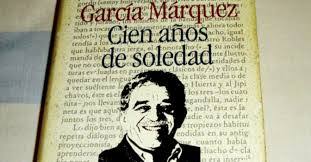
1 When did you first read Gabriel García Márquez and what were your impressions?
I first read García Márquez in graduate school. The novel was Cien años de soledad [One Hundred Years of Solitude], and I was overwhelmed. There hasn’t been a novel, before or since, quite like that one.
2 García Márquez famously liked his novels in English, but what are those of us who have never read the Spanish originals missing?
My sincere hope is that those of you who don’t read Spanish aren’t missing too much.
3 Which of his books do you like most, and why?
I can’t answer that question. I love everything of his that I’ve read, though Love in the Time of Cholera occupies a special place for me since it was the first of his books that I translated. I believe it’s one of the great novels of the 20th century, in any language.
4 Do you have some favourite sentences or passages from your translations and can you explain how you arrived at your choice of words?
I don’t think I can answer this one either, though I’m very fond of the last words of Cholera. When the riverboat captain asks how long they intend to travel up and down the river, the reply is «Forever.»
5 Were there any books or sections of his books you struggled with?
Translating is always a struggle, regardless of the author you’re translating. You have to hear the original voice in a profound way, and then find the voice in English that best reflects that original. It’s always difficult, challenging and immensely enjoyable.
6 Do you know Gregory Rabassa and did you ever compare notes?
Yes, I’ve known Gregory Rabassa for some years, but we’ve never compared notes in terms of translating García Márquez, other than to agree that we both dislike the term «magical realism».
7 You must be more familiar with García Márquez’s prose than almost anyone. How do you think it changed over the two decades you translated him?
I think his writing may have become more intense and more concise as he aged. He always went straight to the heart of the matter, but his later writing may have been sparer, perhaps more direct.
8 How well did you know him personally and what was your relationship like?
I saw him a few times in New York. I believe the first time was at a lunch with our editor at Knopf, and the last time was for late-afternoon coffee. He was charming and intelligent and had a sly sense of humour. I felt close to him immediately.
9 How would you sum up his literary achievements?
He was a great writer, one of the most important of the 20th century, and he had a huge influence on writers all over the world. I can’t, for example, imagine Toni Morrison or Salman Rushdie without García Márquez.
10 What are your top 10 novels in Spanish and who are the writers you would recommend to García Márquez fans who haven’t kept up with more recent Latin American fiction?
I can’t name the top 10 writers in any language, but I’d suggest going back to Cervantes, who is the godfather of every writer in Spanish since the 17th century. A younger writer I like very much is Santiago Roncagliolo, a Peruvian who currently lives in Barcelona. I translated his Red April, which won the Independent foreign fiction prize a couple of years ago.

Leave a Reply
You must be logged in to post a comment.